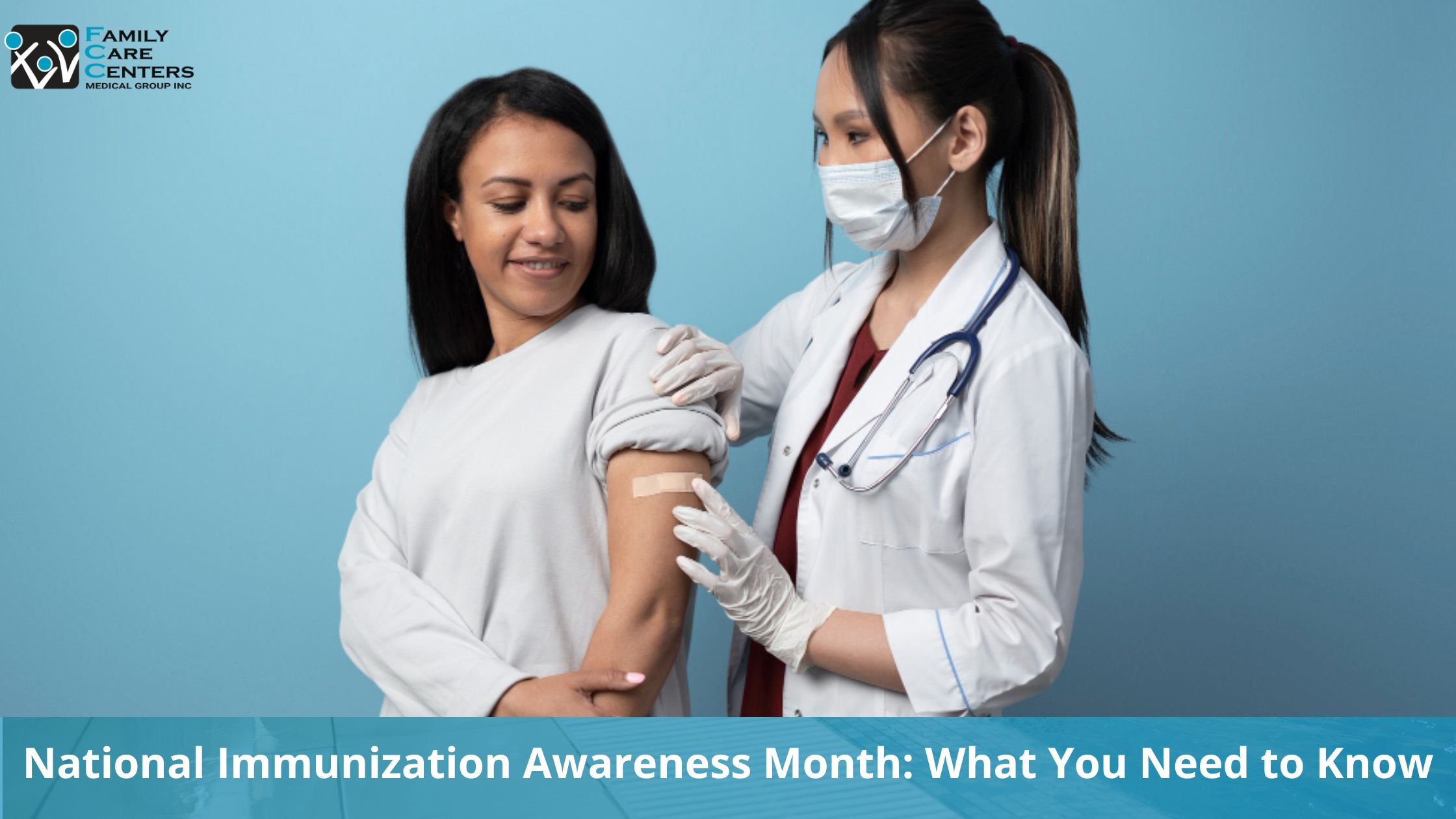

Fountain Valley Urgent Care Will Be Closing on March 28. We’re Here to Care for You at Our Other Locations.

August is National Immunization Awareness Month (NIAM), a time dedicated to highlighting the importance of vaccination for people of all ages. This annual observance is a crucial reminder of immunizations' role in preventing diseases and promoting public health. Whether you're a parent, a healthcare provider, or simply someone looking to stay healthy, understanding the significance of immunizations is vital.
Immunizations, commonly known as vaccinations, are medical interventions that help protect individuals from infectious diseases. They work by introducing a small, non-infectious part of a disease-causing organism, or a blueprint of it, into the body. This stimulates the immune system to recognize and combat the actual pathogen if encountered in the future.
The primary benefit of immunizations is disease prevention. Vaccines have eradicated smallpox and reduced the incidence of diseases like measles, mumps, and rubella; the World Health Organization estimates that over 154 million lives have been saved by vaccines over the past 50 years. By getting vaccinated, individuals contribute to a healthier society, reducing the burden of diseases on the healthcare system and preventing outbreaks.
There are different types of vaccines designed to target specific diseases. Some common types include:
Contain a weakened form of the live virus that can stimulate the immune system without causing illness.
Use a killed version of the virus or bacteria, still generating an immune response
Contain an inactive toxin produced by the bacteria, protecting against the harmful effects of the toxin
National Immunization Awareness Month (NIAM) was established to promote the importance of vaccination for people of all ages. Supported by the Centers for Disease Control and Prevention (CDC) and other health organizations, NIAM provides a platform to educate the public about the safety and efficacy of vaccines.
The objectives of NIAM include:
Increasing awareness about immunizations.
Encouraging people to stay up-to-date on their vaccinations.
Dispelling myths and misconceptions about vaccines.
By doing so, NIAM aims to improve public health and curb the spread of vaccine-preventable diseases.
The NIAM theme changes yearly, focusing on particular aspects of immunization. This helps raise awareness about specific populations or vaccine recommendations.
There are numerous reasons why immunizations are a cornerstone of public health:
Vaccines effectively prevent various illnesses, saving lives and reducing healthcare system burdens
By promoting herd immunity, vaccinations protect not only the vaccinated individuals but also those who cannot receive vaccines due to medical conditions or age, which is especially important for vulnerable populations like infants and immunocompromised individuals
Widespread vaccination programs have significantly reduced the incidence of several diseases globally, with some diseases even on the verge of eradication
The importance of vaccination extends throughout life. Here's a breakdown of critical vaccinations for different age groups:
Early childhood vaccines are crucial for protecting young children from potentially life-threatening diseases. Vaccinations against measles, mumps, rubella, polio, and whooping cough are typically administered in the first few years of life, setting the foundation for a healthy future.
As children become teenagers, additional vaccines are recommended to maintain immunity and protect against new threats. Essential adolescent vaccines include HPV, meningococcal disease, and the Tdap booster (tetanus, diphtheria, and pertussis).
Adults should ensure they are up-to-date with their vaccinations to protect themselves and those around them. Essential vaccines for adults include the annual flu shot, vaccines for hepatitis, pneumonia, COVID, HPV, and the Tdap booster. Other vaccines might also be recommended depending on health status and travel plans.
Vaccinations are vital for seniors, as the immune system weakens with age. Vaccines for pneumococcal disease, shingles, and an annual flu shot are particularly crucial for older adults to prevent severe illness and complications.
Family Care Centers Medical Group Inc. is proud to support National Immunization Awareness Month by emphasizing the importance of vaccinations for all ages. Our experienced healthcare team is committed to delivering comprehensive immunization services to protect you and your loved ones from preventable diseases.
Visit FCCMG's Irvine, Costa Mesa, and Fountain Valley locations to stay up-to-date with your vaccinations and contribute to a healthier community.
Content Source : WHO
Content Source : CDC